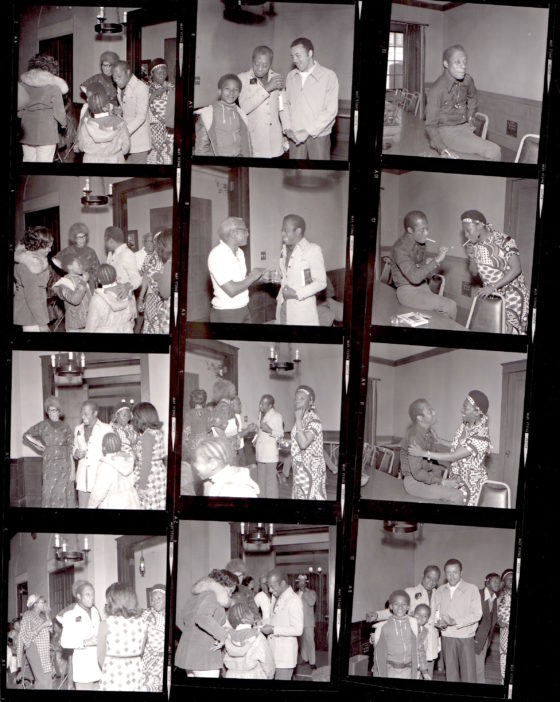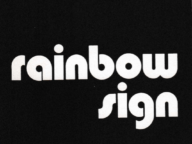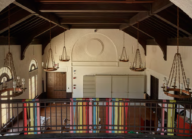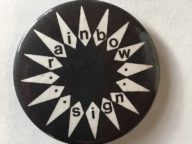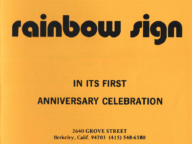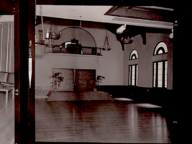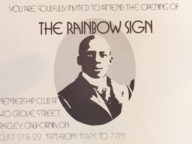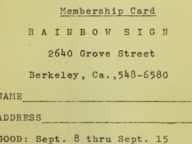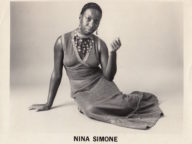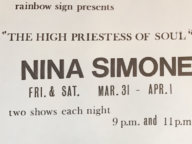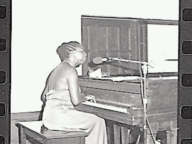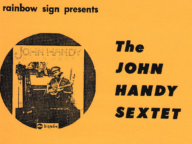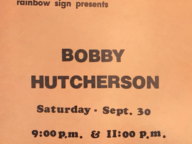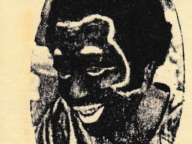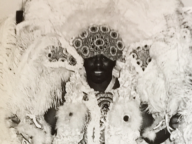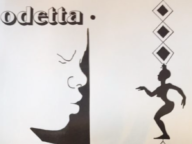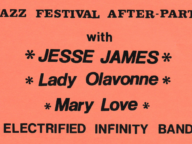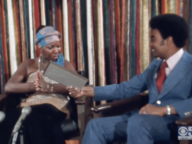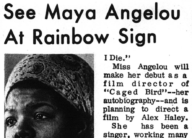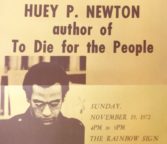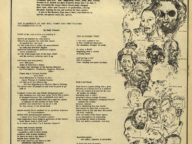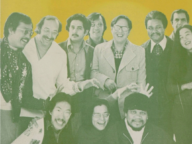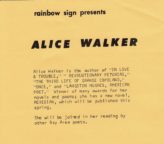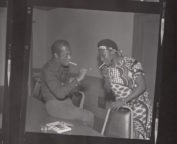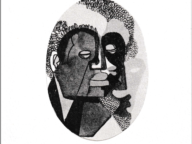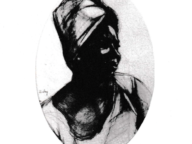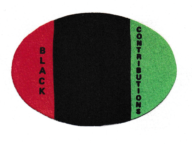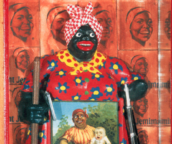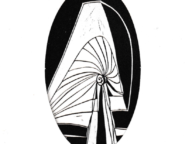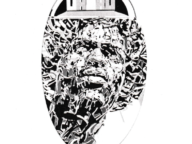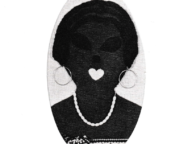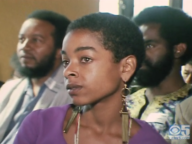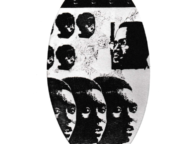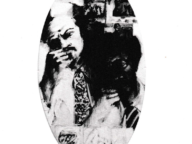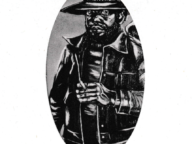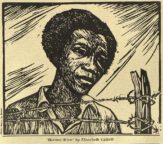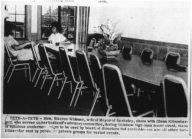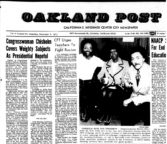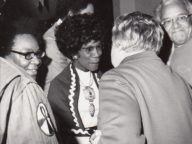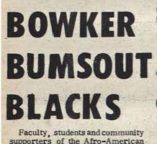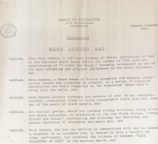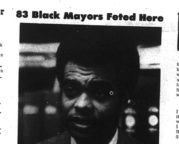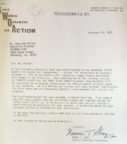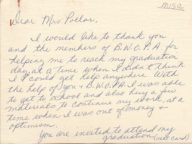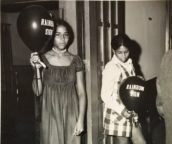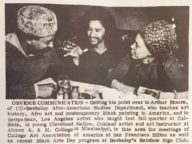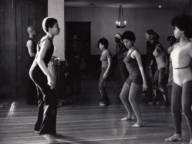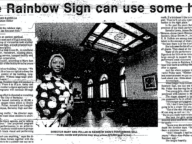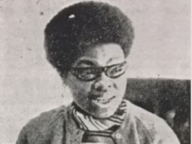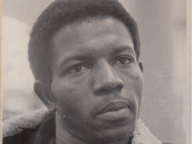James Baldwin, the novelist and public intellectual, was a frequent guest at the Rainbow Sign, although he made just one official appearance to support the publication of his book of film criticism The Devil Finds Work (1976).
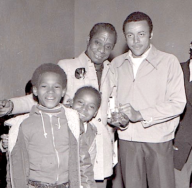
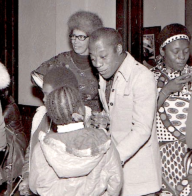 One of the most powerful aspects of these collected images is their depiction of the author’s love and respect for children. He challenged the utterly false notion that gay men have no interest in children in his widely celebrated letter to his nephew on the 100th anniversary of emancipation and the first three images in the top column as well as the first in the second column offer a rare window into Baldwin and children’s mutual admiration for each other.
One of the most powerful aspects of these collected images is their depiction of the author’s love and respect for children. He challenged the utterly false notion that gay men have no interest in children in his widely celebrated letter to his nephew on the 100th anniversary of emancipation and the first three images in the top column as well as the first in the second column offer a rare window into Baldwin and children’s mutual admiration for each other.
Baldwin appears to have been a primary influence on Mary Ann Pollar and on the Rainbow Sign. The two were longtime friends: it was through Pollar’s outreach that Baldwin was recruited to work on the KQED film Take This Hammer (1964), in which Baldwin toured the depressed neighborhoods of Black San Francisco and had frank exchanges with members of the community.
Like Pollar, Baldwin defied easy categorization. He was closer in thought to Malcolm X than to Dr. Martin Luther King Jr. in many respects, and yet he continually advocated for unsentimental love as a tool to dismantle domination. His essay The Fire Next Time earned him wide respect among white liberals and many on the Left but his ideas were thought too dangerous to be aired during the Dr. King’s March on Washington.
A keen observer of Black life and American culture more generally, Baldwin managed throughout his career to make plain the feeling in Black communities across the country in ways that demanded deep meditation on questions of personal complicity in systemic exploitation and oppression. His efforts to articulate the roots of Black rage to white Americans were perceived by many militant factions as capitulation, but Mary Ann Pollar seemed to understand that identifying white people as wayward younger brothers and sisters was a way of undermining the legitimacy and integrity of racist mainstream American values while lifting up Black culture as a tool for political edification.
